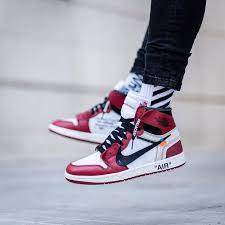The Dangers of Fake Air Jordans: Protecting Consumers and the Integrity of the Brand

Air Jordans, produced by Nike in collaboration with basketball legend Michael Jordan, are iconic sneakers coveted by sneaker enthusiasts and sports fans worldwide. The popularity and desirability of Air Jordans have unfortunately given rise to a counterfeit market. These fake Air Jordans are sold through various channels, including online platforms and unauthorized retailers. In this article, we will explore the dangers and consequences associated with purchasing counterfeit Air Jordans.
Quality Compromises:
Counterfeit Air Jordans are notorious for their inferior quality. The materials used in their production are often substandard, resulting in shoes that lack durability, comfort, and the iconic design details of genuine Air Jordans. Stitching, logo placement, and overall craftsmanship are usually subpar, leading to a noticeable difference when compared to authentic pairs.
Lack of Performance:
One of the key reasons people buy Air Jordans is their exceptional performance on the basketball court. Counterfeit versions, however, fail to replicate the technology and engineering found in authentic pairs. The cushioning, traction, and support systems are often absent or poorly imitated, compromising not only the performance but also potentially risking the wearer’s safety during athletic activities.
Intellectual Property Infringement:
Counterfeit Air Jordans violate the intellectual property rights of Nike and Michael Jordan. These fake products illegally reproduce copyrighted designs, trademarks, and logos. Such infringement undermines the efforts of the original brand to create innovative and distinctive sneakers. It also has a detrimental impact on the economy and the livelihoods of those involved in the genuine production and distribution of Air Jordans.
Legal Consequences:
Purchasing and selling counterfeit Air Jordans is illegal in many jurisdictions. Law enforcement agencies actively crack down on counterfeit operations due to the negative impact they have on businesses and consumers. Being caught in possession of or involved in the sale of fake sneakers can result in fines, legal action, and damage to one’s personal and professional reputation.
Supporting Unethical Practices:
Buying counterfeit products, including fake Air Jordans, supports an underground market that engages in various illicit activities. Counterfeit operations often involve organized crime, child labor, and exploitation of workers in sweatshop conditions. By purchasing fakes, consumers unintentionally contribute to these unethical practices and human rights violations.
Conclusion:
While the allure of owning a pair of Air Jordans can be tempting, it is crucial to stay vigilant and only purchase from authorized retailers or the official Nike website. Fake Air Jordans not only disappoint in terms of quality and performance but also harm the integrity of the brand, violate intellectual property rights, and contribute to unethical practices. By opting for genuine products, consumers can ensure their safety, support legitimate businesses, and uphold the value of authenticity and innovation in the sneaker industry.